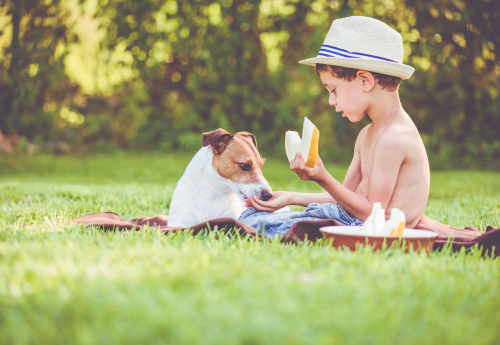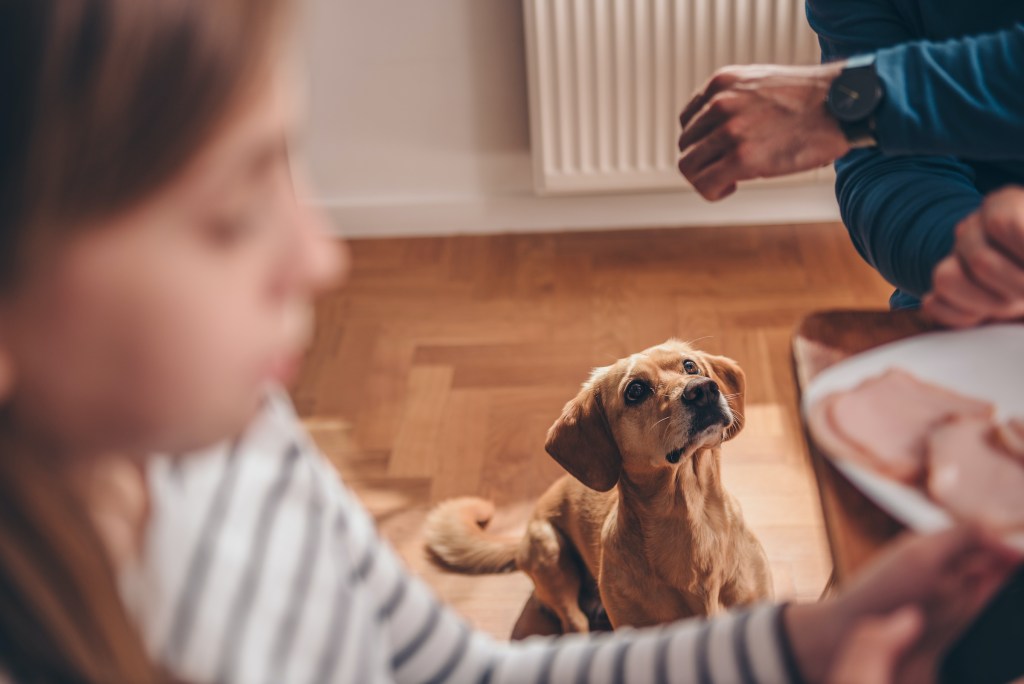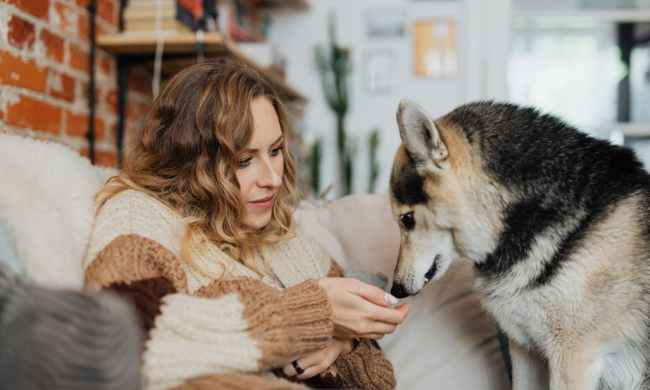There’s a long and complicated list of safe human foods for dogs. Carrots? Yes! Grapes? No! Can dogs eat cantaloupe? You’ll be happy to learn that this melon works just fine for beasties, in small quantities, that is.
Like all treats, you’ll need to keep the snack as an occasional extra. It’s always important to ensure your pet gets all the major nutrients from their staples, like kibble. But if you want to know more about feeding your doggie cantaloupe, read on for the details.
Is cantaloupe good for dogs?

In moderation, it can be. This fruit contains a ton of vitamins and antioxidants that are beneficial for both of you. This includes dietary fiber, vitamins B6, A, and C, niacin, folate, and potassium. That means you’re getting the health benefits of these antioxidants, like slowing cell aging and improving the risk of some diseases.
Plus, because a slice of melon is mostly water, you don’t have to worry too much about overfeeding it to your buddy. Between the nutrients and the fiber, cantaloupe not only tastes good, but it will also help their digestion.
Are there any dangers to feeding your dog cantaloupe?

We’ll start with the big one: Under the wrong circumstances, this could turn into a choking hazard. The rind, in particular, may pose a problem to your little guy and it’s best to feed them just the meat part of the melon. But even that bit could be an issue if you make cantaloupe balls, for example, and they get stuck in his throat. Dogs aren’t known for carefully chewing their food, after all.
Additionally, too much of it, the edges, in particular, could cause stomach upset. And while we’re on the topic of excess, you certainly don’t want to overdo it with any treat, particularly one that’s so sugary. With enough fruit, any dog can start to pack on the pounds. This is even more true for animals with underlying conditions, such as diabetes. If they’re on a special diet, check in with your vet before you reach into the fridge for a morsel to share.
Next time you sit down for a tasty gourd, cut your pup off a slice, and don’t worry about slipping them a piece or two. The saying to remember is everything in moderation. Generally speaking, you want your dog’s meals to consist of commercial food that has been designed to meet their nutritional needs. Then you can supplement with snacks, which should only make up about 10% of their daily calorie intake. Too much sugar or fat will start to cause problems, even in an otherwise healthy dog, and obesity can shorten your furry friend’s lifespan. Provided it’s just a bite here and there, your pet will love their cantaloupe treat.




